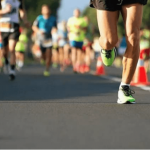In the framework of the Intercultural Sport Challenge project (co-funded by the Erasmus + program), we are proud to share with you the results of the questionnaire aimed at sports instructors, educators, social workers, and teachers working with multicultural groups of children in different types of organizations and institutes (sports clubs, schools, educational services, refugee centres), and local associations. Therefore, we asked for different topics regarding the promotion of social inclusion through sports (socioeconomic context, needs and existing resources at the community level, or the number of multicultural groups related to different stakeholders).
Regarding the results, we can bear in mind the following considerations:
-It is shown how the lack of economic resources and the cultural habits or non-integration, score high levels when asking the most important obstacles young people in a situation of social exclusion face to access sports in their communities.
-It is also revealed that there is a lag between the sports offer and diversity, and the real needs of children and young people in the community, which can lead to the lack of interest and the premature abandonment of the sport disciplines.
-There is a common agreement on the lack of connection between sports and social organisations together with schools and educational centres, that weaken the effectiveness of sports promotion.
Conclusions
On one hand, there is still an immense majority of young people served by different organizations that do not have habits of regular sports practice. This very first conclusion should be considered for future transformational actions to increase regular sports participation in the communities analysed. Therefore, there is the common need to propose strategies to democratize access to sports practice, serving the community and offering very low fees to assure anyone is excluded.
On the other hand, one of the most evident factors avoiding sports participation are the cultural barriers associated with family beliefs, which often condition the decisions of all family members. This is a key factor to be taken into account for the promotion of sports activities through, for example, awareness-raising days with the different cultures present in the community (religious agents, organizations that welcome people in situations of extreme vulnerability and schools)
Finally, the need for networking between sports and social organisations together with schools and educational centres, since the last ones have the prestige to disseminate existing regular sports activities in the community, coordinating efforts, leveraging the organization’s own resources, putting them at the service of the community as well as adapting the sports offer to the real needs and interests.
Intercultural Sport Challenge is a European project framed on the Erasmus + program, and in which L’Orma participates as project manager together with Associació Esportiva Ciutat Vella (AECV) from Spain, Astiki Mi Kerdoskopiki Etairia 4C from Greece, Network for European Citizenship and Identity (NECI) from Cyprus and Youth Sport Trust International from the United Kingdom.
“If you areinterested in starting a mutual partnership with us, click here“
Stay tuned for our next steps!


